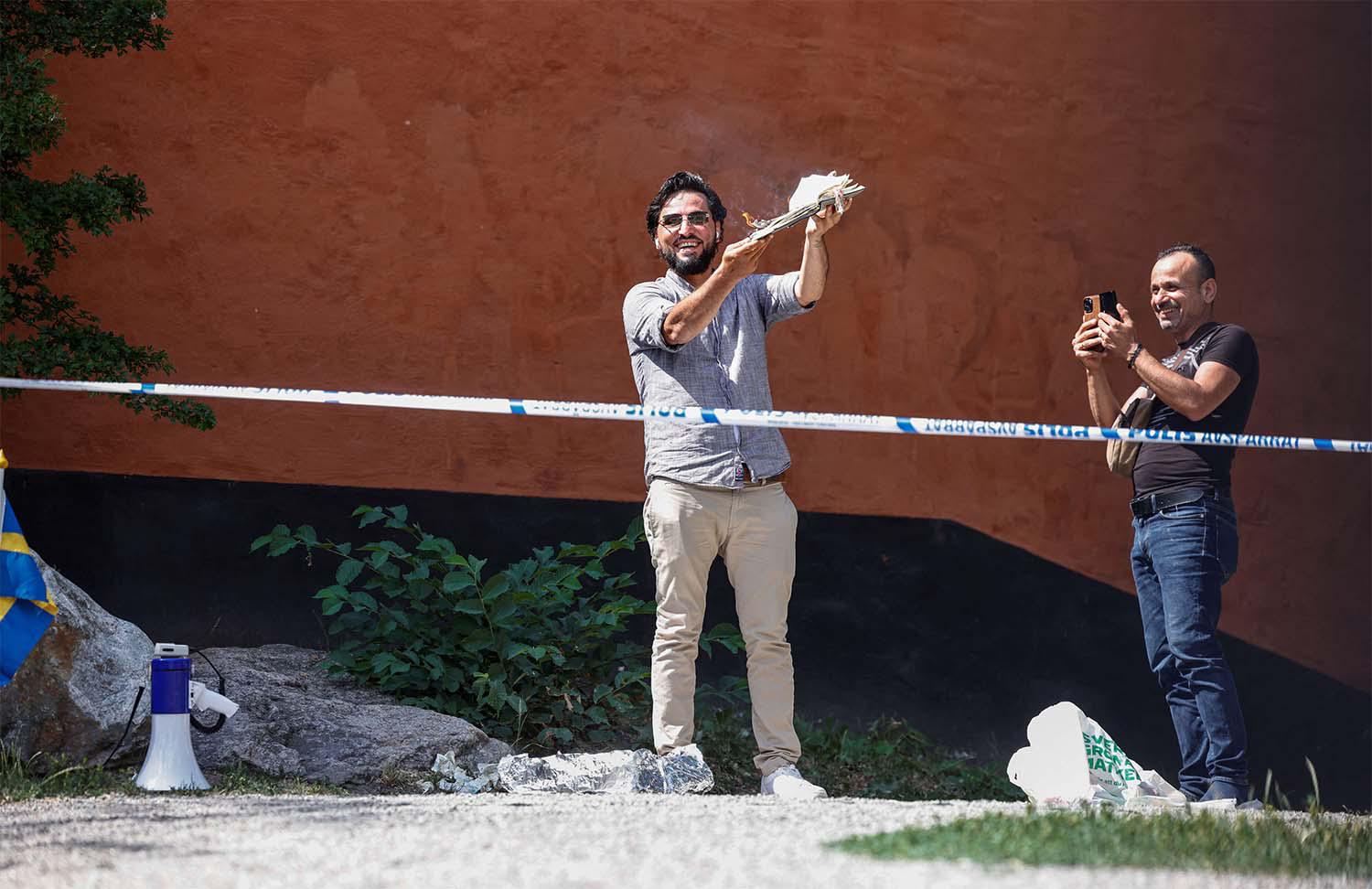Sweden Takes Legal Action Against Quran Burnings: Charges Two with Hate Crimes
The alleged desecration of the Holy Quran by burning copies and making derogatory comments about Muslims, including one incident outside mosque in Stockholm

Two men in Sweden, Salwan Momika and Salwan Najem, are facing prosecution for burning copies of the Quran in a series of incidents last year. The Swedish authorities charged the men with "offenses of agitation against an ethnic or national group" for acts intended to show contempt for Muslims by desecrating their holy book on four separate occasions, including outside a Stockholm mosque.
"Both men are prosecuted for having on these four occasions made statements and treated the Quran in a manner intended to express contempt for Muslims because of their faith," said Senior Prosecutor Anna Hankkio.

The evidence primarily consists of video footage capturing these events. Najem denies the charges, with his lawyer, Mark Safaryan, stating, "The permit granted in connection with the demonstration is covered by my client's intent. His rights are protected by the Swedish constitution."
Momika, an Iraqi Christian, admitted he intended to "protest against the institution of Islam and to ban its holy book."
These actions sparked outrage across the Muslim world, where desecrating the Quran is viewed as a severe offense. The Quran, regarded by Muslims as the literal word of God, holds profound significance, and such acts of desecration are deeply offensive and inflammatory.

The Organization for Islamic Cooperation (OIC) condemned the burnings, labeling them as an "act of aggression that spreads hatred and contempt for religions and threatens global peace, security, and harmony."
The burnings have not only caused diplomatic tensions but also raised security concerns in Sweden. Following the incidents, Sweden's domestic security agency raised its terrorism threat level, fearing potential reprisal attacks.
In December 2023, Denmark, in response to a wave of Quran burnings, passed legislation banning the public burning of religious texts. The bill, following a heated debate, was approved with 94 votes in favor and 77 against in the 179-member parliament.

Earlier this month, Sweden charged Swedish-Danish right-wing activist Rasmus Paludan for a 2022 protest in the southern city of Malmo, where he burned a copy of the Holy Quran. Sweden, however, has yet to implement a similar law, though authorities are considering options that would allow the police to reject permits for demonstrations posing national security risks.
While critics in Sweden argue that these Quran burnings fall under free speech protections, many believe that freedom of expression should not extend to acts that incite hatred and disrespect toward an entire religious group.
Muslim-majority countries like Saudi Arabia, Iran and Iraq strongly condemned the incident of Quran burnings and took diplomatic actions. Iraq expelled the Swedish ambassador and protesters stormed the Swedish embassy in Baghdad. Turkey issued an arrest warrant for Danish-Swedish activist Rasmus Paludan for insulting religious values.
For many Muslims, the Quran burnings are not just a matter of religious offense but a symbol of growing Islamophobia in Europe. While Sweden dropped its blasphemy laws in the 1970s, the government is now considering ways to legally limit Quran burnings to de-escalate the international backlash.
